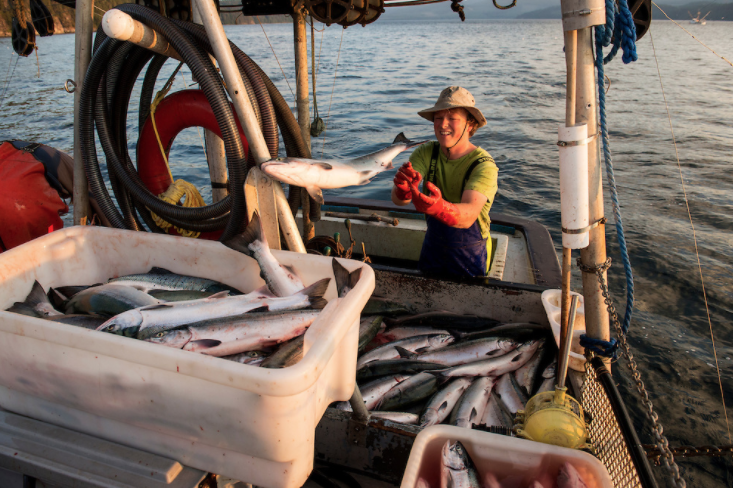Principles
- Salmon and humans can thrive together. They have done so in BC for 13,000 years.
- Wild salmon are essential to BC’s economy, ecology, food security, First Nations’ culture and well-being, and as a global contributor to climate stabilization.
- The capacity of wild salmon, not hatchery fish, to rapid-evolve is our best hope for maintaining this species in a changing world. We owe it to future generations to restore the wild salmon that feed us and our world.
- BC’s world-leading genomic profiling can take us beyond 100 years of failure by allowing the salmon to guide us.
- First Nations’ relationship with salmon is central to all aspects of this work. Their knowledge and presence equips them to protect wild salmon for the next seven generations. Respecting their leadership, guardianship and authority over their Traditional Territories benefits all British Columbians.
- British Columbians have the right to information about wild salmon health because salmon are a public resource and this information is essential to restoring salmon populations.
- This work will rely on independently-funded sources of shared information that is diverse, localized, strong and connected – like the salmon themselves.
- Standardization of data collection is refreshed continuously between all groups to ensure methods are as efficient and synchronized as possible.
- This work respects economic diversity and engagement with industry on a level playing field to minimize impacts on wild salmon.
- Decision-making regarding wild salmon must be localized and based in solid science to overcome the influence of lobbying from interests that view wild salmon as an impediment to growth.

